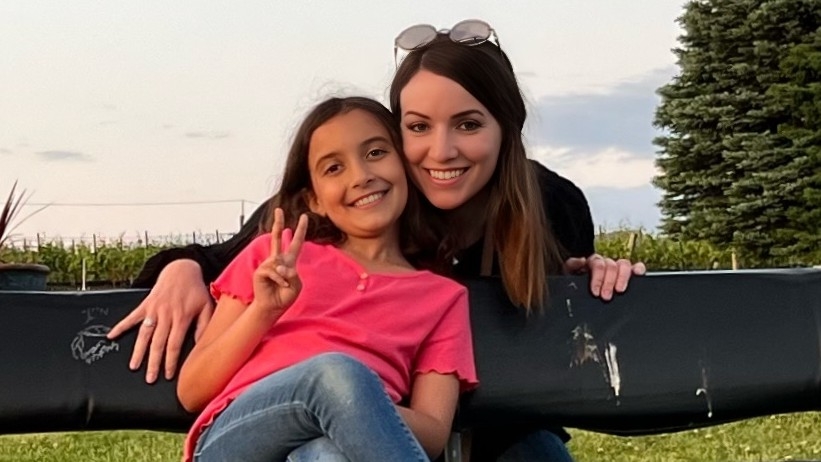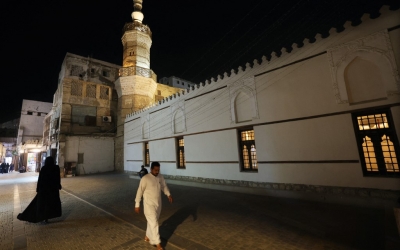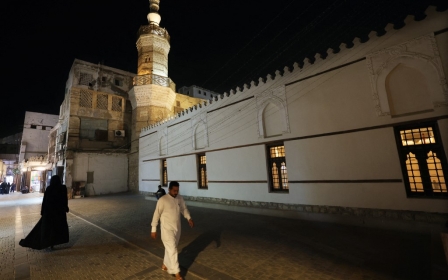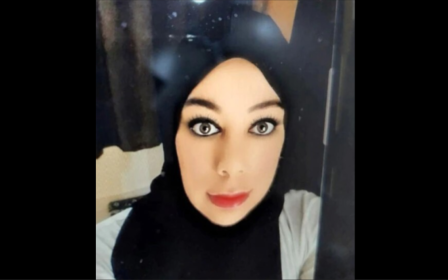US woman, daughter who escaped Saudi Arabia at risk of being sent back

An American woman who fled Saudi Arabia in 2019, and advocates for herself and other women affected by the kingdom’s guardianship system, might be forced to send her daughter back to the country due to a continuing custody battle.
Bethany Alhaidari, a 36-year-old senior fellow at the Human Rights Foundation and the Saudi case manager at The Freedom Initiative, has a US court hearing on 24 October that will decide her fate and that of her eight-year-old daughter Zaina, The Guardian reported. Her case will be heard by a three-judge appeals panel in Wenatchee, Washington, in the state where she lives.
“We fought hard to get back to a life where we had a chance at safety, dignity, basic rights, and freedom. Zaina can grow up to be a judge, a politician or marry whoever she chooses and she will not be barred from that simply because of being born female,” Alhaidari told Middle East Eye.
“She can grow up to choose her own faith, she may be LGBTQ+, a dissident, or an activist without having to risk imprisonment or death.”
According to Alhaidari, she has been solo parenting her since she was a baby with support from her parents.
Stay informed with MEE's newsletters
Sign up to get the latest alerts, insights and analysis, starting with Turkey Unpacked
“All of that can be taken away from her in one decision,” she said. “It’s hard to fathom the level of trauma a return to Saudi Arabia would have on her life, but I know her well enough to know that it would be detrimental for both of us.”
In December 2019, six years after moving to the country, Alhaidari finally made her way out of Saudi Arabia. She had divorced her husband in January 2019.
She was able to get her now ex-husband’s permission to leave the kingdom to go to the US for a trip with Zaina. Once she arrived, she filed for emergency jurisdiction.

Since the US upholds international custody rulings – unless there are severe human rights concerns associated with the custody matters – the decision on whether Alhaidari and her daughter could remain rested with the US courts.
A lower court ruled in Alhaidari’s favour after she argued that Saudi Arabia’s custody and male guardianship laws violated her human rights. But the decision was then appealed by Alhaidari’s ex-husband. The case will proceed with oral presentations in October.
Human Rights Watch then submitted an amicus brief - a document authored by individuals or groups who are not directly involved in a legal case, but who can offer expertise to assist the court in making its decision. According to HRW, Alhairdari could face a “serious risk of corporal punishment, lengthy imprisonment, and the death penalty” if the court rules to send Zaina back and if her mother accompanies her to Saudi Arabia.
Systemic barrier
Saudi Arabia has a male guardianship system in place which dictates that when a woman is born, her father is her legal guardian until she is married, after which her husband becomes her legal guardian. Women need approval from their "guardians" to apply for passports, travel, and work at a paying job - though much of that has changed in recent years.
In Islam, there is a concept of guardianship where the intended purpose is for the man to protect a woman. But, according to a State Department report, Saudi Arabia uses it to "drastically [expand] the powers that it grants to guardians over the past 70 years, justifying such expansions on its unique interpretation of sharia and imposing them on women regardless of their individual religious beliefs".
The State Department's website states that "married women, including non-Saudis, require their husband's permission to depart the country, while unmarried women and children require the permission of their father or male guardian.
"Minor children must have their father’s permission in order to leave the Kingdom. Children visiting their fathers in Saudi Arabia, even when there is a custody agreement, can be prevented from leaving unless the father consents. This is true even if the child is an American citizen.
The website states that the US embassy and consulates cannot obtain exit visas for the departure of minor children without their father/guardian's permission.
Because the guardianship system and the consequences of challenging it are "among the systematic, ongoing, and egregious violations of religious freedom", the US Commission on International Religious Freedom (USCIRF) has recommended that the US State Department designate Saudi Arabia a Country of Particular Concern under the International Religious Freedom Act (IRFA) of 1998.
"USCIRF has explicitly called for a plan to end the guardianship system since 2017," the USCIRF report from 2020 states.
USCIRF has also urged the Saudi government to develop a set of policies to end the guardianship system by removing penalties on women for "disobedience" of guardians, absence from home and enforcing existing laws against domestic abuse.
In 2018, Saudi Arabia announced new measures that would give women more freedoms, such as the ability to drive and travel without the permission of their husbands. But these inroads remain complicated. While the country boasts of progress in women's rights, many women in Saudi Arabia are still fighting for their lives.
Since she has been in the US, Alhaidari has worked on more than 50 cases of women and their children trapped in the kingdom.
In 2019, Carly Morris and her daughter Tala were stuck in the Gulf kingdom after her Saudi ex-husband persuaded the two to visit the country. Just a few months ago, Morris was able to return to the US but was forced to leave Tala behind following a custody dispute.
Middle East Eye delivers independent and unrivalled coverage and analysis of the Middle East, North Africa and beyond. To learn more about republishing this content and the associated fees, please fill out this form. More about MEE can be found here.




